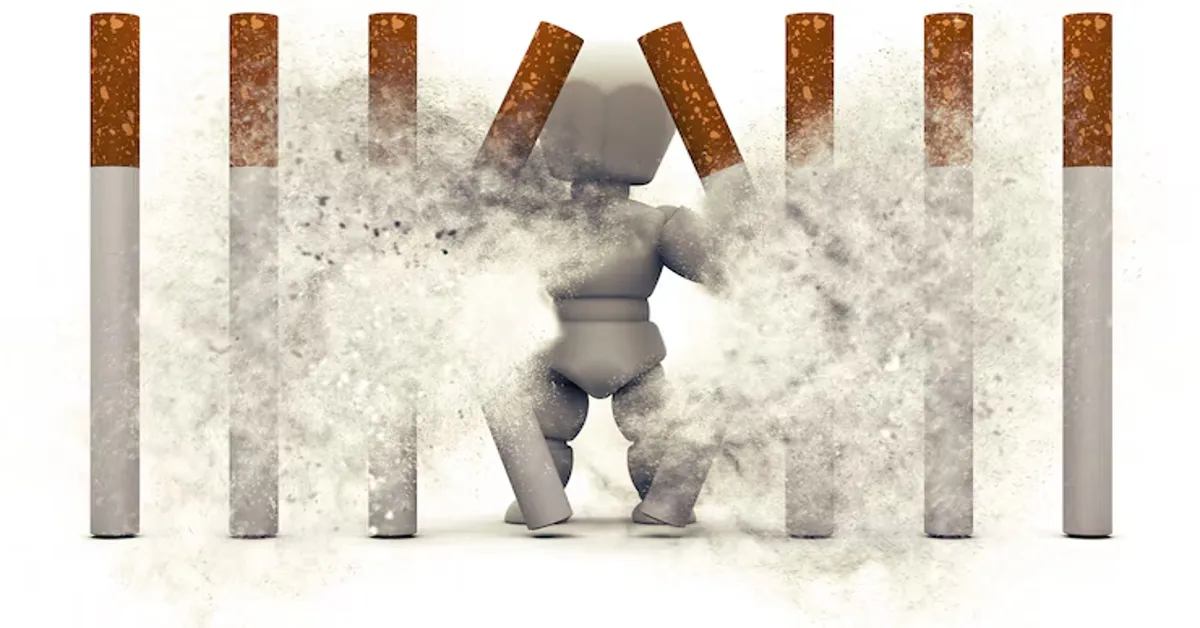For those searching to understand what Seneca cigarettes are, this article delivers everything you need to know—clearly, objectively, and comprehensively. Seneca cigarettes are Native American-produced tobacco products primarily manufactured and sold within tribal territories. They occupy a unique place in the U.S. tobacco industry, not only for their price and accessibility but also for their deep ties to sovereignty and indigenous commerce. This exploration will unpack the origin, cultural relevance, legal frameworks, health concerns, and economic implications of Seneca cigarettes, presenting a thorough, balanced, and updated analysis.
Introduction
In the sprawling history of tobacco in North America, Seneca cigarettes hold a particular place—neither fully mainstream nor entirely marginal. They are deeply embedded in Native American economies and often the subject of federal, state, and legal scrutiny. While commonly discussed in terms of price and legality, few pieces truly examine the layered reality behind their production and distribution.
Seneca cigarettes aren’t just an alternative tobacco product; they are a lens through which we can view the intersections of indigenous rights, commerce, health policy, and federalism. In a marketplace saturated with corporate tobacco giants, Seneca cigarettes emerge as both an economic opportunity and a contested legal frontier.
What Are Seneca Cigarettes?
Seneca cigarettes are tobacco products manufactured by Native American tribes, primarily the Seneca Nation of Indians, in New York State. They are often sold at significantly lower prices than mainstream brands such as Marlboro or Camel. This affordability stems from their production and distribution through sovereign Native territories, where different taxation rules may apply.
Unlike mass-market cigarettes, Seneca brands typically cater to a specific demographic: consumers seeking affordability and Native communities asserting economic self-determination. These cigarettes are legal when sold on tribal lands, but their distribution beyond those borders can involve complex legalities.
Table: Overview of Seneca Cigarettes
| Aspect | Details |
|---|---|
| Manufacturer | Seneca Nation of Indians (primarily) |
| Typical Pricing | 30–50% less than major commercial brands |
| Legal Sales Territory | Tribal lands and authorized outlets |
| Federal Regulation | Subject to FDA oversight, but often exempt from state taxes on tribal lands |
| Popular Varieties | Full flavor, light, menthol, and non-filtered options |
| Distribution Challenges | Conflicts between tribal sovereignty and state law |
| Main Consumer Base | Budget-conscious smokers, tribal communities |
Historical Context
The history of Seneca cigarettes begins not just with commerce but with sovereignty. The Seneca Nation, part of the Iroquois Confederacy, has long asserted its rights to self-governance. This includes the right to manufacture and sell tobacco products on tribal lands.
Tobacco itself has deep indigenous roots. Long before it was commodified, tobacco was a sacred plant in many Native cultures, used in rituals, healing practices, and diplomacy. When indigenous nations began producing cigarettes for sale, it wasn’t merely economic—it was an assertion of cultural and political autonomy.
By the 1990s and early 2000s, Seneca-produced cigarettes began gaining popularity among smokers due to their low cost. What started as a local economic venture quickly became a regional and national phenomenon, attracting both loyal customers and increased scrutiny.
Why Are Seneca Cigarettes Cheaper?
One of the most commonly asked questions is: why are Seneca cigarettes so inexpensive?
The answer lies in a complex web of taxation, jurisdiction, and sovereign rights. Because these cigarettes are produced and sold on tribal lands, they are often not subject to the same state taxes as other brands. This creates a significant price advantage. In states like New York, where tobacco taxes are among the highest in the country, the difference in cost can be stark.
It’s important to note, however, that the federal government still maintains regulatory authority over the health and safety standards of all tobacco products, including those produced by tribes. The FDA requires warning labels and restricts marketing practices for Seneca and other Native-made brands.
Health and Safety Concerns
From a health perspective, Seneca cigarettes carry the same risks as any other combustible tobacco product. Nicotine addiction, lung cancer, heart disease, and chronic respiratory conditions are common health outcomes associated with smoking, regardless of brand or origin.
The difference, however, is often in the perception. Some consumers mistakenly assume that Seneca cigarettes are more “natural” or less chemically treated than commercial brands. While some tribal manufacturers advertise their products as using fewer additives, the health risks remain virtually identical.
Regulatory Landscape
The legal framework surrounding Seneca cigarettes is multi-layered and often contentious. Here are the key dimensions:
- Federal Law: The FDA oversees the manufacturing standards of all cigarettes, including those made by tribes. This includes packaging, warning labels, and chemical disclosures.
- State Law: States often attempt to impose tobacco taxes on all cigarette sales, including those originating from tribal lands. However, states cannot tax Native American governments directly due to sovereignty.
- Tribal Sovereignty: Native American tribes argue that they have the inherent right to produce and sell tobacco products within their territories, free from state interference.
These competing jurisdictions have led to numerous lawsuits, enforcement actions, and political negotiations. Some states have entered into compacts with tribes to share tax revenue, while others have tried to restrict off-reservation sales.
Economic Impact on Native Communities
For many tribal governments, the production and sale of cigarettes is more than a business—it’s a cornerstone of economic development. Revenue from tobacco sales helps fund essential services such as healthcare, education, housing, and infrastructure.
Seneca cigarettes represent a model of economic self-sufficiency. By controlling the production chain from start to finish—cultivation, manufacturing, distribution, and retail—tribes can create jobs and generate income independent of federal or state funding.
However, this dependence on tobacco revenue also comes with risks. Legal battles, shifting regulations, and anti-smoking campaigns can all impact profitability. Still, many tribes see this industry as a practical way to assert sovereignty and support their communities.
The Role of Tobacco in Indigenous Culture
While commercial tobacco use poses significant health risks, traditional tobacco holds a sacred place in many Native American cultures. It’s used in ceremonies, offerings, and as a conduit for prayer and spiritual connection.
This dual identity—tobacco as both medicine and merchandise—creates internal debates within indigenous communities. Some tribal members argue that selling cigarettes undermines cultural values and public health, while others see it as a necessary tool for survival and self-governance.
Efforts to distinguish between sacred and recreational tobacco use are ongoing, with some tribes implementing educational programs and health initiatives alongside their commercial ventures.
Consumer Perception and Market Reach
The reputation of Seneca cigarettes varies widely. For some smokers, the lower price is the main draw. Others are motivated by a desire to support indigenous businesses. A small subset believes—erroneously—that Seneca cigarettes are safer or more “natural” than commercial brands.
Despite their affordability, Seneca cigarettes are not always easy to purchase. Legal restrictions often limit their sale to reservation stores or authorized dealers. Attempts to resell these cigarettes in urban areas have led to seizures and prosecutions.
Nonetheless, the demand remains strong, particularly among price-sensitive consumers and those living near tribal lands.
Controversies and Legal Disputes
Seneca cigarettes have been at the center of numerous legal battles, particularly with the state of New York. These conflicts often revolve around taxation and the legality of off-reservation sales.
In one high-profile case, New York attempted to block the shipment of Seneca cigarettes to non-tribal wholesalers. The state argued that it was losing millions in unpaid taxes, while the Seneca Nation claimed the state was infringing on its sovereign rights.
Such disputes have escalated to federal courts and even the Supreme Court, though many cases end in settlements or negotiated agreements.
Future Outlook: Where Are Things Headed?
The future of Seneca cigarettes is likely to evolve along several axes:
- Health Regulation: As anti-smoking policies strengthen nationwide, tribal manufacturers will need to adapt to stricter health guidelines and shifting public attitudes.
- Economic Diversification: Some Native American communities are exploring ways to diversify their economies beyond tobacco, including renewable energy, tourism, and cannabis production.
- Legal Clarity: Continued litigation may eventually yield clearer legal standards regarding taxation and distribution, potentially reducing the friction between state governments and tribal nations.
- Cultural Reclamation: There’s growing interest in reclaiming traditional uses of tobacco and educating tribal youth about the difference between sacred and commercial use.
Myths and Misconceptions
It’s worth addressing some common myths about Seneca cigarettes:
- “They’re tax-free everywhere.” False. While they may be tax-free on tribal land, state and federal taxes can apply outside those boundaries.
- “They’re healthier.” False. All cigarettes pose significant health risks, regardless of additives or production methods.
- “Anyone can sell or buy them.” False. Sales are often restricted by tribal and state law.
Final Thoughts
Seneca cigarettes occupy a space at the crossroads of commerce, culture, and conflict. They offer affordable options for smokers and revenue for tribes, but also raise complex questions about health, legality, and sovereignty. As regulations tighten and public attitudes shift, the industry will face new challenges and opportunities.
What remains constant is the significance of Seneca cigarettes as more than just a product—they are a symbol of resilience, identity, and the ongoing struggle for self-determination among Native American nations. For consumers, lawmakers, and health advocates alike, understanding the full picture is essential.
In a marketplace shaped by profit and policy, Seneca cigarettes remind us that not all commodities are created equal—some carry the weight of history, sovereignty, and survival.
FAQs
1. Are Seneca cigarettes legal to buy and smoke in the United States?
Yes, Seneca cigarettes are legal to buy and smoke within the United States, particularly when purchased on tribal lands where they are manufactured. However, their legality becomes more complex when sold off-reservation due to state tax regulations and distribution laws. It is legal for non-Native individuals to purchase them on tribal land for personal use, but reselling or transporting large quantities across state lines may violate state tax laws.
2. Why are Seneca cigarettes cheaper than other cigarette brands?
Seneca cigarettes are often 30–50% less expensive than major commercial brands primarily because they are manufactured and sold by sovereign Native American tribes, which means state tobacco taxes may not apply when sold on tribal land. However, federal taxes and health regulations still apply, and prices may vary depending on where they are purchased.
3. Are Seneca cigarettes healthier or more natural than name-brand cigarettes?
No, Seneca cigarettes are not healthier than mainstream brands. While some versions may use fewer chemical additives, they are still combustible tobacco products containing nicotine, tar, and carcinogens. Smoking any cigarette poses serious health risks, including lung cancer, heart disease, and respiratory illness.
4. Can I buy Seneca cigarettes online or have them shipped to my home?
In most cases, online sales and shipment of Seneca cigarettes are restricted or prohibited by federal and state laws, including the Prevent All Cigarette Trafficking (PACT) Act. Many tribes and retailers do not offer direct-to-consumer shipping due to legal complexities. It’s best to purchase Seneca cigarettes in person at authorized tribal retailers.
5. Who makes Seneca cigarettes, and what is their purpose in Native communities?
Seneca cigarettes are manufactured by businesses owned or operated by Native American tribes, especially the Seneca Nation of Indians in New York. Their production serves not just commercial purposes, but also supports tribal economic independence, generating revenue for healthcare, education, housing, and community development within Native communities.











